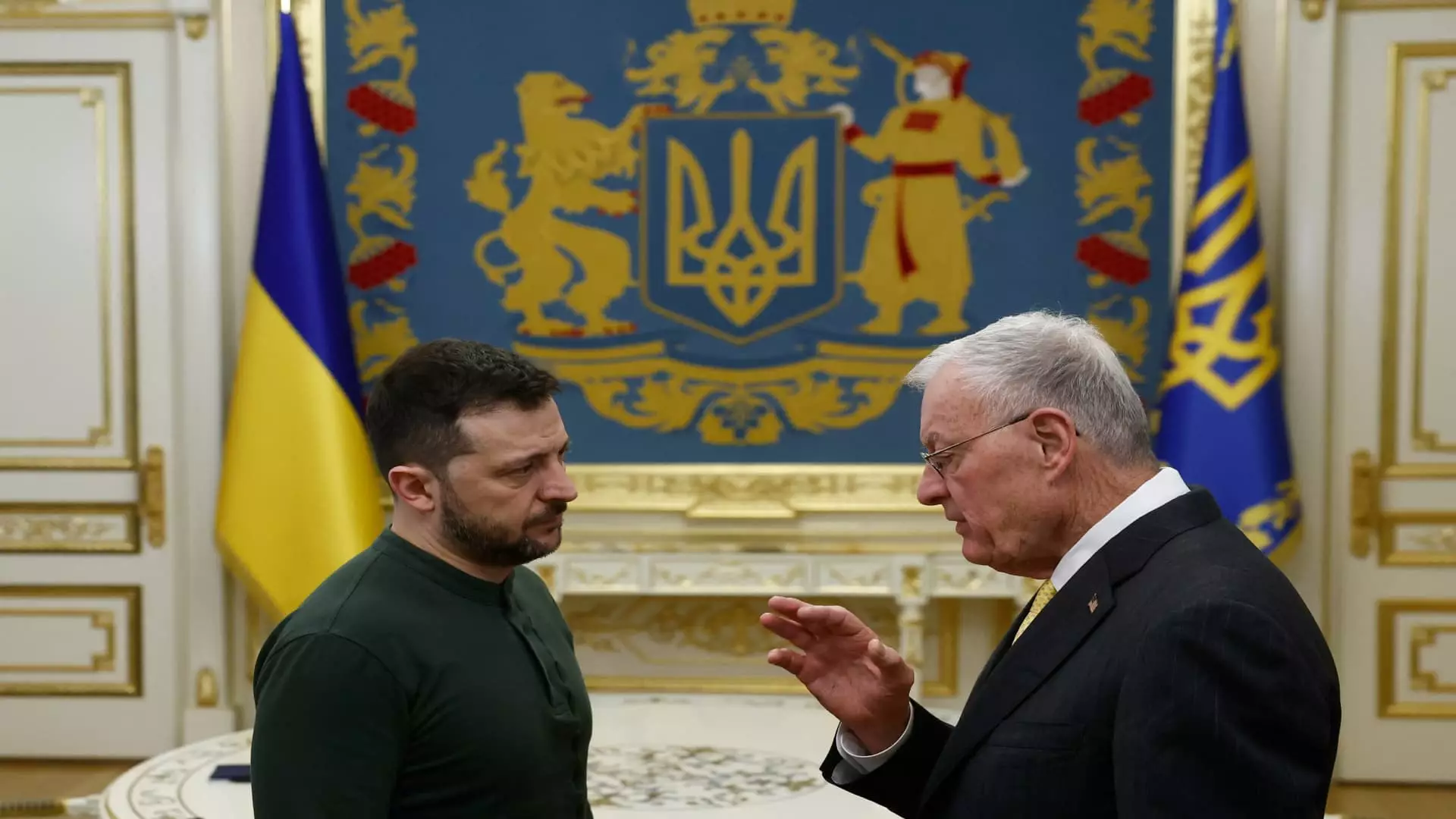In the midst of ongoing conflict and devastation, Ukraine finds itself at a pivotal crossroads where its access to critical resources is being dictated by external forces, particularly the United States. As the war rages on, negotiations between the U.S. and Ukraine have turned into a complex web of strategic interests, with critical minerals and access to satellite communication leading the conversation. This article delves into the implications of these negotiations, examining the delicate balance of power and the potential consequences for both nations.
Recent discussions have highlighted an unexpected focal point: Ukraine’s rich deposits of vital minerals such as lithium, titanium, uranium, and graphite, crucial components in various modern technologies and renewable energy applications. U.S. negotiators have signaled that access to these resources could be contingent upon Ukraine’s compliance with demands from Washington, effectively using these minerals as leverage in discussions about wartime aid. This seems to align with the broader U.S. strategy of securing stable supplies of rare earths—an essential resource in a world that is becoming increasingly reliant on technology and green energy solutions.
Ukraine’s reluctance to concede control over its mineral wealth stems from its sovereignty concerns and previous experiences with external powers. President Volodymyr Zelenskiy has openly rejected proposals that would transfer significant portions of these assets to U.S. interests, arguing that such a move would undermine Ukraine’s autonomy and long-term stability. As Ukraine continues to fend off Russian aggression, the negotiation landscape is exacerbated by the necessity of securing military aid and technological support from the West.
Another essential element of this negotiation dynamics is SpaceX’s Starlink satellite system, which has become indispensable for Ukrainian military operations. The service has provided critical internet access in areas where traditional communications infrastructure has been decimated by the war. In discussions between Ukrainian officials and U.S. representatives, the threat of restricting or entirely cutting off this satellite service is being insinuated as a consequence of Ukraine not yielding to U.S. demands.
Starlink’s operational capabilities underlie Ukraine’s drone warfare strategy, which has evolved significantly since the conflict began. According to experts, the integration of Starlink into military operations has allowed Ukraine to establish parity with Russian forces, significantly enhancing its combat effectiveness. The implication of losing such connectivity would indeed be profound, potentially leading to the degradation of Ukraine’s defensive and offensive capabilities in the field.
The intersection of these negotiations reflects a broader geopolitical narrative whereby U.S. lawmakers and officials are deeply divided in their approach to the Ukraine conflict. While some factions advocate for a quick resolution with Russia, leveraging Ukraine’s resources as a bargaining tool, others emphasize the need for comprehensive support and assurances for Ukraine’s sovereignty and territorial integrity. The discussions surrounding these critical minerals thus also carry political weight, impacting the internal dynamics of both U.S. and Ukrainian politics.
Zelenskiy’s resistance against extensive U.S. demands has incited friction, notably with former President Donald Trump, who has criticized Ukraine’s leadership. Trump’s narrative revolves around portraying Ukraine as a client state rather than a partner in the war against Russia, further complicating the negotiations. Observers caution that this rhetoric could lead to a rift not only between the leaders but potentially deepen mistrust within Ukraine regarding U.S. intentions.
As negotiations over critical minerals and access to vital satellite communications unfold, the stakes for Ukraine could not be higher. The outcome of these discussions will shape not only Ukraine’s immediate responses to the Russian onslaught but will also define its long-term relationship with the United States. The balance of power hinges on Ukraine’s ability to maintain its sovereignty while navigating the pressures exerted by external powers seeking strategic advantage. Ultimately, the challenges ahead showcase the complexities of international politics and the desperate need for coherent strategies that prioritize the well-being and autonomy of nations grappling with the reality of war.


Leave a Reply